
A borderless Europe may seem like a distant prospect at the moment. But as struggles for universal access to the global commons beyond the nation-state intensify, it is bound to become a necessity, say Ulrike Guérot and Robert Menasse.

A borderless Europe may seem like a distant prospect at the moment. But as struggles for universal access to the global commons beyond the nation-state intensify, it is bound to become a necessity, say Ulrike Guérot and Robert Menasse.
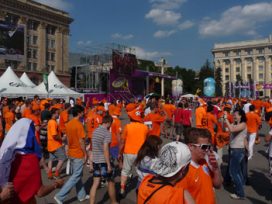
On 6 April 2016 in the Netherlands, a referendum will be held on the Ukraine-European Union Association Agreement – the first since the enactment of the Dutch Advisory Referendum Act from 1 July 2015. More than 427,000 requests were received, significantly more than the 300,000 required. To be valid, a turnout of at least 30 per cent of eligible voters is required, of which a simple majority defines the result. The referendum’s outcome is not binding for the government, but if negative, will have a strong symbolic impact on the rest of the European Union, and further alienate Ukraine from Europe. Zaven Babloyan, a publisher and translator from Kharkiv (Ukraine), reflects on political misunderstandings, a lack of solidarity and literature as the last hope.

The unholy alliance of bureaucracy and race, among the most pernicious of imperial legacies, is very much alive today. So says Vlasta Jalusic, who urges proper political reflection on the implications of this for a world system in which both Africa and Europe are still marked by genocides of the none-too-distant past.

Even the mainstreams of democratic societies are vulnerable to destructive and dangerous sentiments in the midst of crisis, writes Jonathan Leader Maynard. But with radicalising calls to extremism at the forefront of public debate, what impact might speech have on violent behaviour?
A critical analysis of nations and nationalism is as crucial now as it ever was, argues Bruno Schoch. But so long as it protects civil liberties and cultivates a constitutional patriotism, then a nation of free and equal citizens remains an ideal worth striving toward.
Oleksandra Matviychuk of Kyiv’s Center for Civil Liberties was awarded the Democracy Defender Award in Vienna on 24 February 2016. The prize, awarded annually, is the initiative of 16 country delegations to the Organization for Security and Co-operation in Europe (OSCE). The following text is based on Matviychuk’s acceptance speech.
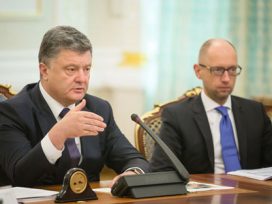
With president Petro Poroshenko and prime minister Arseniy Yatseniuk having lost their image as radical reformers of late, Iryna Solonenko says it is up to Ukraine’s new reform-minded actors in both government and civil society to secure a new social contract. However, the challenges they face are formidable, as the legacies of previous regimes persist and resistance to change among the old guard remains fierce.

Firstly, you have to talk to your enemy even in the middle of a war, writes Senad Pecanin. Secondly, that dialogue will not be at all easy or pleasant; and thirdly, it is worth trying, since when it does take place, it is almost certain to yield useful results.
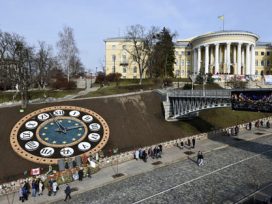
The Maidan protests have given Ukraine a chance to stop and look at its future, and plan it the way she wanted to, writes Kateryna Botanova. Now it’s becoming apparent how to make the revolutionary shift from continual fighting, distrust and questioning of legitimacy to mutual support, collaboration and growth.
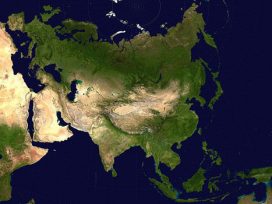
If the European Union wants to remain relevant in global affairs, it must be active along the new Silk Road, writes Adam Balcer. It must look to a Eurasia that goes beyond Russia and the former Soviet republics, and formulate an eastern policy concerned primarily with China, Turkey and Iran.

New technologies like genome editing raise complex ethical questions that go the heart of debates over so-called “human nature” and evolution. Philosopher of science Tim Lewens considers how the latest innovations affect received notions of what is and what is not natural.

Perhaps the most serious problem with drones is not the state of mind they create in their operators, writes Arne Borge of Vagant (Norway); but that war has given way to never-ending police action, where the police force is no longer subject to common law.
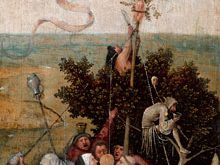
Just weeks after Ukraine’s parliament voted to remove Viktor Yanukovych from office, the country’s eastern regions descended into a senseless war, marking a grave new low in relations with Russia. Historian Olena Stiazhkina reflects powerfully on how the conflict has compromised Ukraine’s attempts to take its destiny into its own hands.
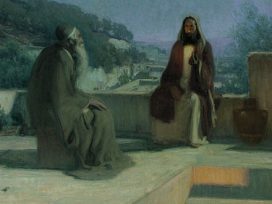
One almost wonders what Christianity has added to Roman writers’ reflections on old age, writes Andrei Plesu. The answer: a much greater emphasis on transcendence. But how might the dimension of transcendence contribute to a better understanding and use of old age?

In honour of Adam Zagajewski being awarded the 2016 Jean Améry Prize for European essay writing, Eurozine publishes Zagajewski’s defence of ardour. That is, true ardour, which doesn’t divide but unifies; and leads neither to fanaticism nor to fundamentalism.
As the struggle between democracy and a dream of some kind of return to the past deepens in Europe, Adam Zagajewksi contemplates the passage between ideas and action in the real world, wherein lies the old European – and not only European – wound.